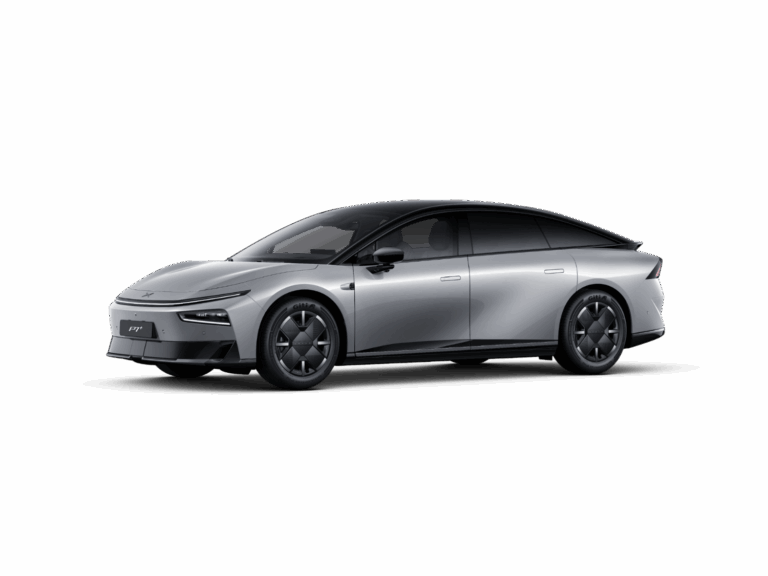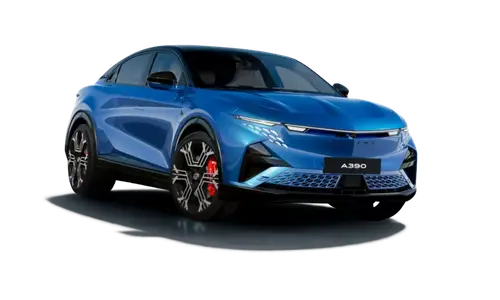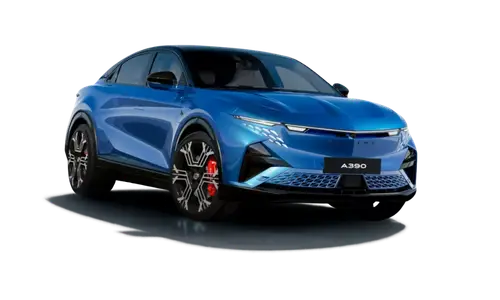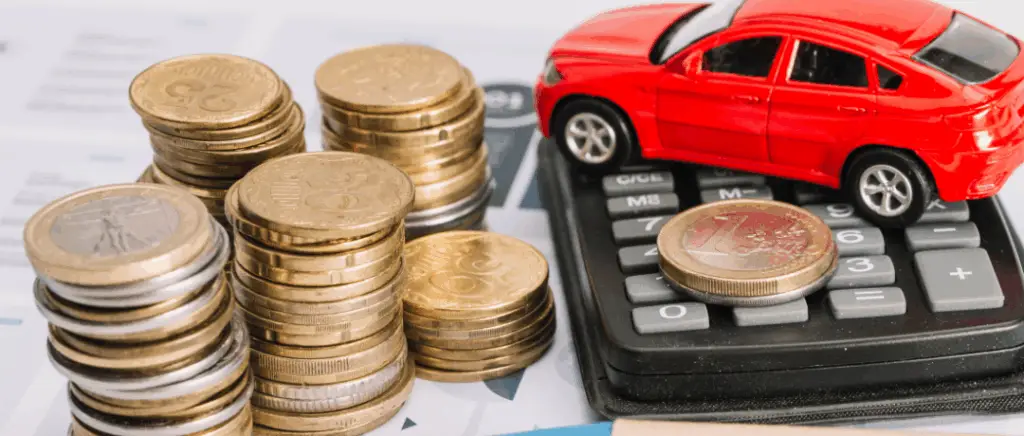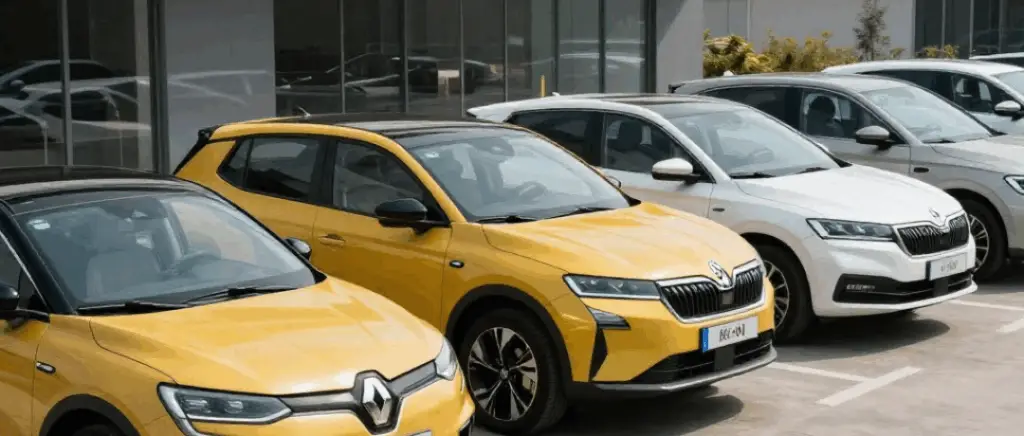The situation in France
An order dated 15 March 2020, published in the Official Journal on Monday 16 March, provides important clarifications on the impact of measures to combat the spread of the Covid-19 virus on automotive service companies.
The following establishments are authorised to receive the public:
- Maintenance and repair of motor vehicles ;
- Sale and repair of motorbikes and cycles ;
- Sale of automotive equipment.
- Retail sale of motor fuels in specialised shops (service stations) ;
- Car parks.
Tow truck breakdown services come under APE codes 45-20 A and 45-20 B: maintenance and repair of motor vehicles.
The repair of commercial vehicles is not expressly listed as an authorised activity. However, the Highway Code does not provide a definition of a motor vehicle, and this activity comes under APE Code 45-20 B: maintenance and repair.other motor vehicles.
The hire of motor vehicles is not expressly listed as an authorised activity. However, the decree authorises the reception of the public in establishments for the hire of equipment and vehicles.of goods,with no further details.
Vehicle sales activities (except motorbikes and cycles) are closed to the public, except for delivery and order collection activities.
Financial markets at half-mast
The first consequence: the collapse of several stock markets. The coronavirus is seen as a "black swan" for the financial markets: unexpected bad news. And the effects were devastating: the world's stock markets experienced their worst week since 2008. Some stocks more or less withstood the shock, while others benefited. The reason is simple: if quarantines force people to stay at home, some companies will 'profit' from the coronavirus.
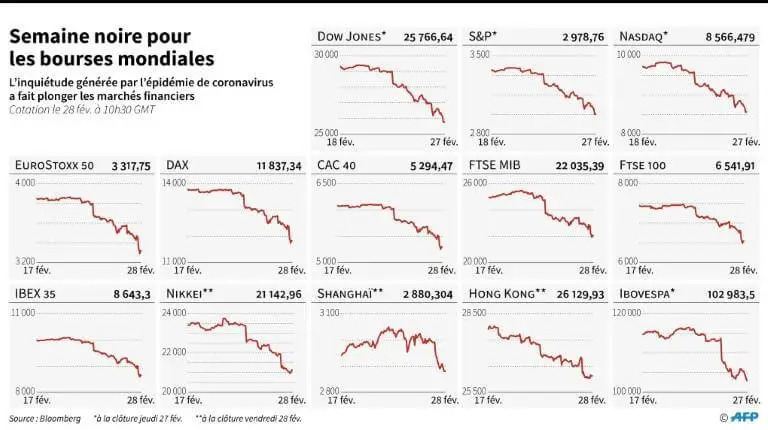
The winners
The "winners" from the Coronavirus remain safe-haven equities, such as US Treasury bonds.
Other companies will also be positively impacted by the coronavirus, including various streaming services: video (Netflix), music (Spotify) and delivery services.
The losers
As you might have guessed, the air transport and tourism sectors in general are the biggest losers from the Coronavirus on the stock market. Luxury goods and all sectors exposed to the Chinese market have been affected by the fear that has gripped the financial markets.
Prices of base metals exposed to the risk of a slowdown in activity in China fell sharply: copper prices fell by nearly 3%, while the price of nickel of more than 2.6%.
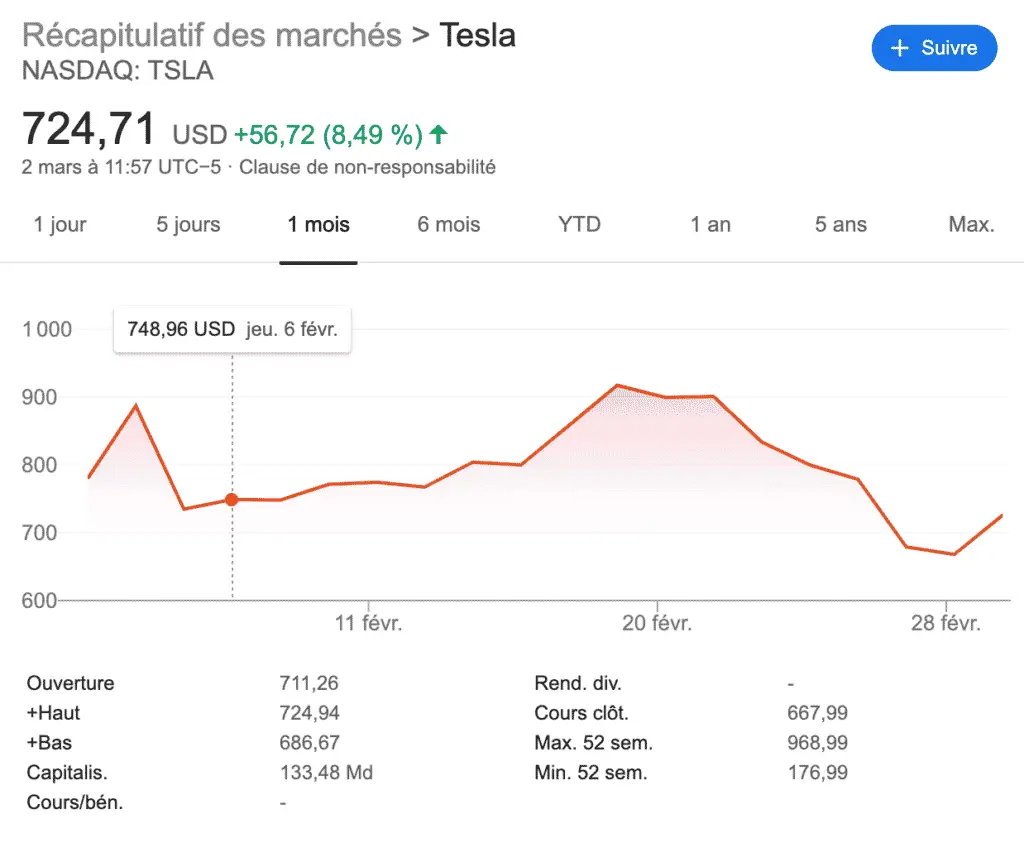
After soaring for months, Tesla's share price has plummeted as a result of the coronavirus. Why is this? Because the epidemic is delaying production of certain Tesla models and will have a direct impact on the Californian giant's results.
"Deliveries scheduled for early February will be delayed. We will make up the production delay once the epidemic situation improves," said Tao Lin, Vice President of Tesla China. The impact on Tesla should be put into perspective: the Shanghai production site is new and did not account for a large percentage of Tesla's output. But what about other manufacturers?
Which brings us to our point: what impact will the coronavirus have on the automotive industry and delivery times?
China: the world's leading car producer and market
First of all, Tesla is far from being the manufacturer most affected by this crisis.
For decades, China has been the promised land of American, European and Japanese carmakers. Today, the coronavirus epidemic threatens to prolong the fall in vehicle sales, derail production in the country and paralyse global automotive supply chains.
Volkswagen (VLKAF), Toyota (TM), Daimler (DDAIF), General Motors (GM), Renault (RNLSY), Honda (HMC) and Hyundai (HYMTF) are among the global carmakers that have invested heavily in China, forging partnerships with local companies and building vast production lines. China is not only the world's largest factory, but also the world's largest car market.
The closure of car factories across China in January for the Chinese New Year holidays had already put the industry under pressure, but with the prolonged closures of many factories due to the virus, the impact on car production is likely to be even greater.
Extended plant closures should make it even more difficult to emerge from the crisis
According to S&P Global Ratings, the epidemic will force Chinese carmakers to cut production by around 15% in the first quarter. The car industry is particularly at risk, as the virus originated in one of China's "car cities". General Motors, Nissan (NSANF), Renault, Honda and Peugeot's owner, the PSA group, all have large plants in Wuhan, which have been closed since the end of January.
Volkswagen is the most exposed brand. The world's largest carmaker has 24 car and parts manufacturing plants in China, which account for 40 % of its output.
The world's second largest car manufacturer, Toyota, has also been affected. Toyota manufactures 15% of its cars in China. This is admittedly a smaller proportion than its rival Honda. But the delays are worrying.
"The situation varies depending on the plant and its parts supply. In addition, we have to take account of local and regional government directives, particularly in terms of logistics. We therefore cannot say with certainty whether we will resume operations at the plant from 17 February", said a Toyota spokesman.
Our experts answer your questions with a smile
Monday to Friday 9am - 12.30pm - 2pm - 7pm
The crisis is already having an impact on Chinese manufacturers
Nio, China's largest electric car start-up, said on Monday that the coronavirus outbreak had contributed to the company's drop in sales last month. Nio sold just 1,598 vehicles in January, almost half of what it sold in December, and down 11.5 % on January 2019. The comparison with January 2019 is particularly striking because Nio sold just one vehicle at this time last year: the relatively expensive ES8 seven-seat electric SUV. Last June, Nio launched a more affordable five-seater SUV, the ES6, which looks to be a much more affordable vehicle...
And will have an impact on the whole world
The longer the crisis drags on, the greater the risk of damage to global automotive supply chains. German engineering company Bosch, the world's largest manufacturer of automotive components, has dozens of plants in China, including two in Wuhan. Other parts suppliers, including Schaeffler, ZF Friedrichshafen, Faurecia and Valeo, have significant operations in the country, according to S&P Global Ratings.
A spokesman for Bosch said on Thursday that its factories in China remain closed on government orders, but that production was expected to resume in many locations shortly, although no date was given. The spokesman said it was still too early to assess the impact on the company.
China is also the global manufacturing base for electric motors, transmissions and other components for electric cars. Tesla (TSLA), which sources parts from several companies in China, has already said that production will be delayed at its new factory in Shanghai.
Time is running out for a major car manufacturer. Hyundai (HYMTF) this week suspended production at its plants in South Korea because the coronavirus has disrupted its supply of spare parts. The Korean automotive sector is sourcing 29 % from China....
But production is not the only factor to be taken into account when considering the impact of the coronavirus. The ban on gatherings will also have an impact on professionals and consumers.
Geneva Show cancelled
In Switzerland, the The Federal Council has banned all events involving more than 1,000 people in the country until 15 March.
Consequence: The organisers of the Geneva Motor Show have decided to cancel the event due to the coronavirus (Yes. All pre-booked tickets will be cancelled. reimbursed to 100 %.)
But some electric 100 % models will still be unveiled.
Maurice Turrettini, Chairman of the Foundation Board, said in a statement:
"We regret this situation, but the health of all the participants is our absolute priority, and that of our exhibitors. This is a case of force majeure and a huge loss for the manufacturers who have invested heavily in their presence in Geneva. We are confident, however, that they will understand this decision.
Several carmakers have confirmed their intention to continue unveiling their electric vehicles via online presentations.
For example, BMW will be unveiling its BMW i4, its next electric car. Fiat-Chrysler was due to unveil its new-generation Fiat 500e electric car, but confirmed today that it had no plans to unveil the vehicle in any context other than the Geneva Motor Show. Fiat-Chrysler is said to be looking for alternative ways to unveil its flagship city car.
Audi has published photos of its Audi e-tron S in anticipation of the show's cancellation. Renault has also released full details and press images of the electric car. Twingo ZE. The French carmaker should do the same for the other models it had planned to unveil.

What impact will the coronavirus have on vehicle deliveries in France?
Delays. For the moment, that's the only certainty. If you ordered your car a long time ago, there's a good chance that its delivery will not be affected by factory stoppages in China and elsewhere. But you'll have to be patient.
It is still too early to know all the implications of the coronavirus for the automotive market, but this crisis has taught us one thing: all automotive companies have become dependent on China, and the risks are now more than ever shared.
We can't predict the next pandemic despite the best efforts of the world, but it would be useful to rethink the global supply chain in order to limit the impact of this type of pandemic on the global economy.
If there is total containment, car dealers will have to close their doors until the end of this period.
What China's economic recovery tells us
In China, the country is gradually getting back on its feet, and the aspirations of Chinese consumers give us some idea of what could happen during the recovery in France.
The firm Ipsosa French polling company, has carried out a study into the consumer habits of the Chinese post-Covid 19. The study shows that the virus has left its mark on the local population, and as a result has helped to change their consumer habits, particularly when it comes to buying cars.
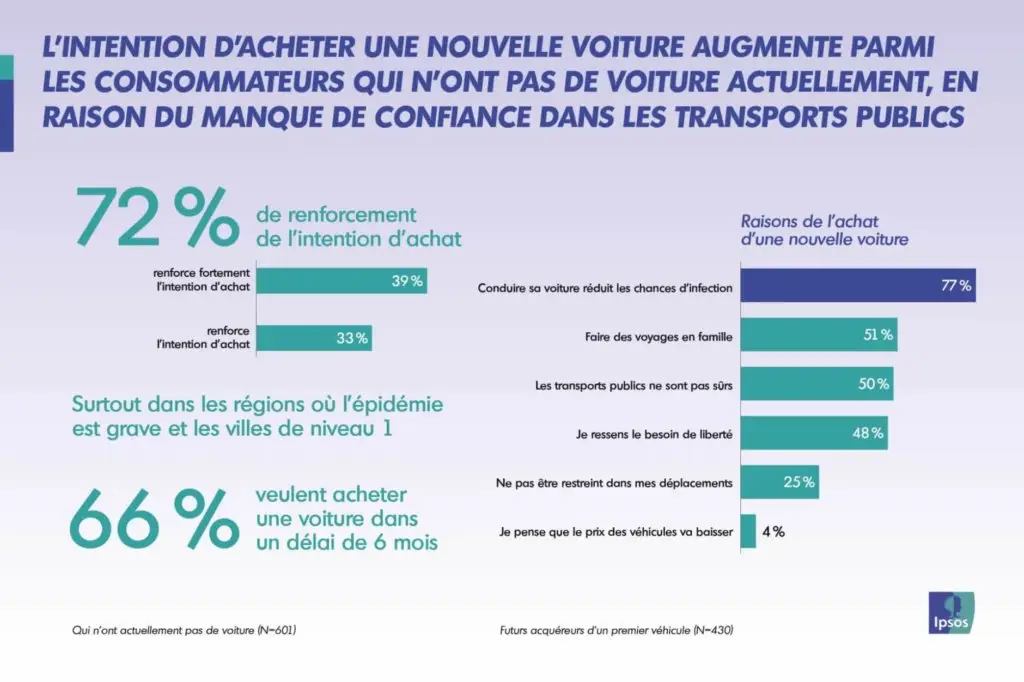
Key points from the study :
- Public distrust of public transport As the virus is easily transmissible, many Chinese no longer trust public transport, which has exacerbated the spread of the virus. As a result, more 72% of Chinese living in the worst-hit regions and who do not own a car would like to buy one. The reason for this? To limit the risk of contamination in future pandemics.
- Social distance boosts e-commerce Here too, people who have experienced confinement are more likely to buy their next car online. 79% of potential buyers want more tailored services These include virtual visits, vehicles delivered to your home for test drives and even orders without test drives.
- The choice of options is also affected by the virus: Chinese motorists want vehicles with options that include anti-bacterial materials, for example.

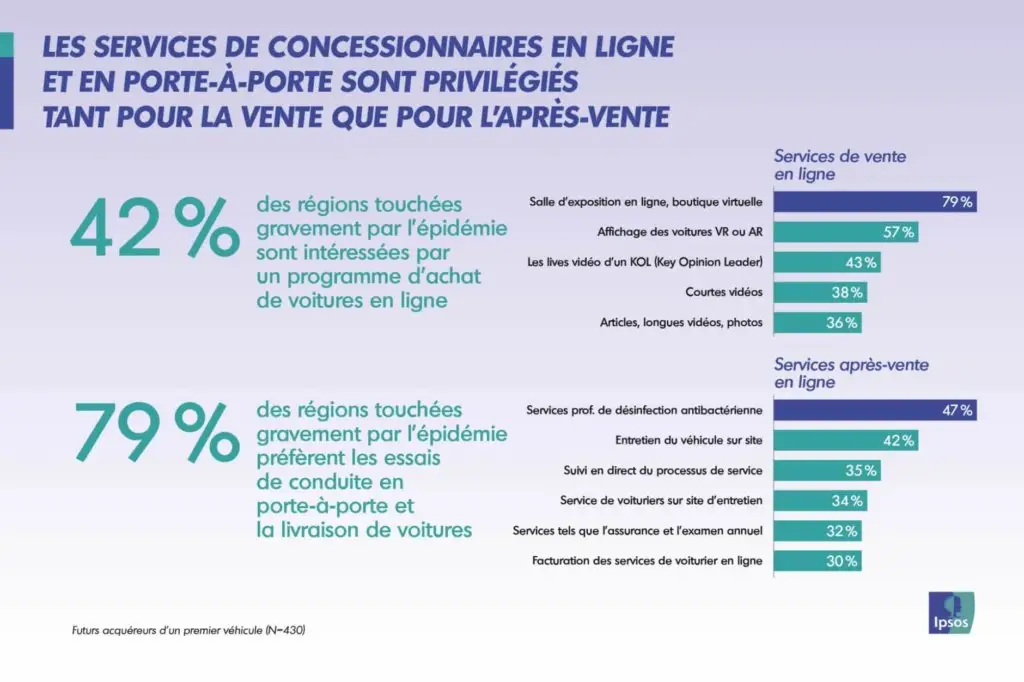
Beev offers multi-brand 100% electric vehicles at the best prices, as well as recharging solutions.

















